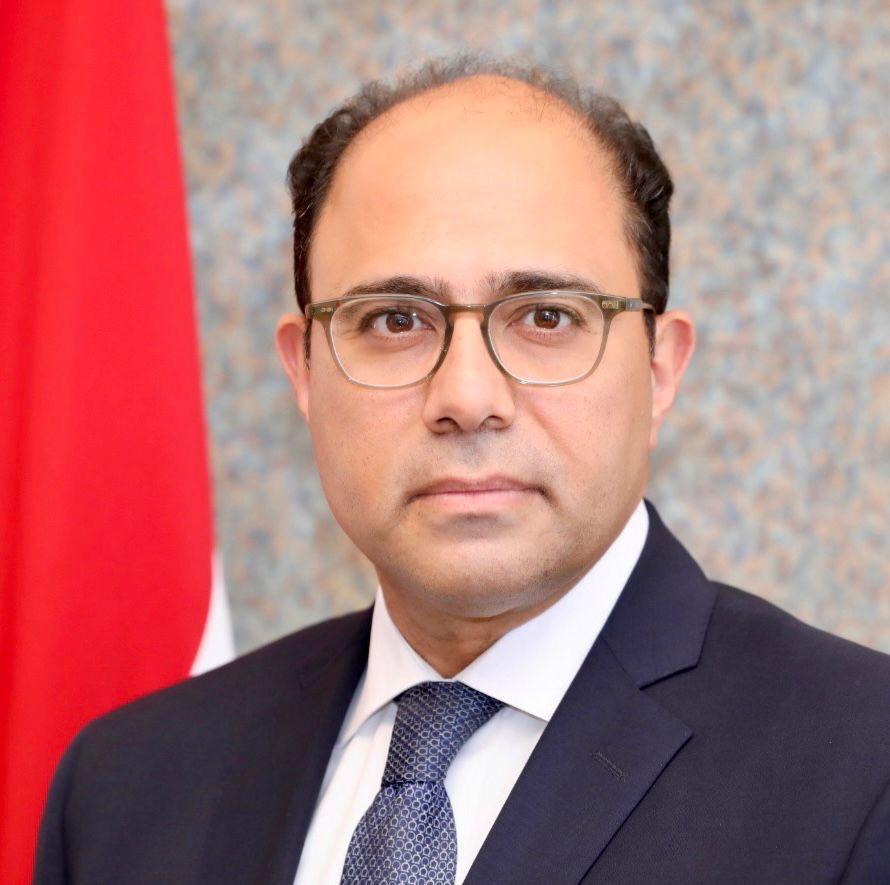As we mark the 76th anniversary of UN peacekeeping, we recall a long and proud history in which, since its founding in 1948, more than one million peacekeepers have served in more than 70 operations across four continents. Over the past seven decades, UN peacekeepers have worked tirelessly to defuse conflict, protect civilians, ensure basic security, respond to crises and facilitate transitions to sustainable peace in some of the world's most challenging situations. In doing so, they have helped countries end chapters of conflict and pave the way for sustainable development, even as enormous peacebuilding challenges remain.
Egypt has been a key supporter of UN peacekeeping operations, contributing troops, police, civilians and expertise to numerous missions around the world. Over its more than 60-year history, Egypt has built an impressive track record in peacekeeping operations, and Egypt has been one of the key countries that have made these successes possible. Since contributing troops to its first UN mission in Congo in 1960, more than 30,000 Egyptians have served in 37 peacekeeping operations in 24 countries.
 Elena Panova, United Nations Resident Coordinator in Egypt
Elena Panova, United Nations Resident Coordinator in Egypt
Egypt is one of the largest contributors of uniformed personnel to UN peacekeeping operations, currently providing 1,602 military and police personnel to UN peace operations in Abyei, the Central African Republic, the Democratic Republic of the Congo, South Sudan and Western Sahara.
Egypt's peacekeeping achievements in over 60 years of peacekeeping operations are impressive, but so is Egypt's sacrifice, with 60 brave Egyptian blue helmet soldiers making the ultimate sacrifice for peace.
Egypt's contributions and sacrifices have been recognized globally, as evidenced by its re-election as rapporteur of the UN Committee on Special Peacekeeping Operations and its recent election as Chair of the UN Peacebuilding Commission. Furthermore, the adoption of the Cairo Roadmap on Strengthening Peacekeeping Operations as an African Union position demonstrates Egypt's strong leadership in this field.
And indeed, Egypt, through its Cairo International Center for Conflict Resolution, Peacekeeping and Peacebuilding (CCCPA), has been a leading voice from the Global South on a wide range of topics including conflict prevention and resolution, peacekeeping and peacebuilding. The CCCPA stands out as an African Union center of excellence and is the only civilian training center on peace and security issues. Through Egypt's effective partnership with the UN family, the CCCPA has emerged as a pillar of dialogue, negotiation, mediation, early warning and response, and crisis management in Africa and the Arab world.
In today's complex and evolving security environment, the need for effective multilateral cooperation has never been greater. Conflicts continue to occur, often with devastating humanitarian consequences. UN peacekeeping operations also face unprecedented threats from the weaponization of digital tools, with hate speech, misinformation and disinformation undermining vital work and fueling violence against peacekeepers, partners and communities.
The United Nations selected “Adapting for the Future, Building Better Together” as the theme for this year's International Day of UN Peacekeepers, noting that it is crucial for peacekeeping operations to adapt to changing political environments and the more complex and interconnected nature of conflicts.
As peacekeeping evolves to reflect the people it serves, women are increasingly part of it and making it more effective. This is an area in which Egypt has been active, and its female peacekeepers (there are currently 102 brave Egyptian women serving in five missions across Africa) are seen as role models in the peacekeeping missions in which they operate.
UN Secretary-General António Guterres has stated that “peacekeepers need the world's support to meet the challenges of today and tomorrow.” In this regard, States will not be able to address conflict prevention and resolution in a comprehensive and sustainable manner unless they take into account young people's perspectives in planning and decision-making. The UN Security Council's Resolution 2250 on “Youth, Peace and Security” was a landmark in recognizing the vital role that young people can play in conflict prevention and resolution.
Moreover, the climate crisis is increasing threats to global peace and security due to rising sea levels, droughts, floods and other climate-related events, highlighting the need for UN peace operations around the world to adapt to and mitigate the risks of climate-induced conflict. Africa is one of the regions most severely affected by climate change, despite its limited contribution to global warming.
The COP27 Presidency’s flagship initiative titled “Climate Change Responses for Sustaining Peace” (CRSP) has played a leading role in this regard by spearheading discussions on how climate change can exacerbate risks of violence, conflict and other forms of state fragility, and the need to address these in a multifaceted and holistic manner.
Egypt has taken the initiative further by launching the Aswan Forum for Sustainable Peace and Development, the next of which will be held in Cairo on 2-3 July, and will be the first African platform to address the interrelationships between peace and development, promote African-led solutions and address peacebuilding from a climate perspective.
Looking to the future, this International Day of UN Peacekeeping reminds us that collective commitment to stronger efforts to advance political solutions to conflicts is needed more than ever. As the Secretary-General has said, “UN peacekeeping is a great enterprise of multilateralism and international solidarity.”
In September, Member States will come together at the Future Summit to jointly consider how to respond to new global threats. In this important forum, UN Member States will have a responsibility to promote multilateralism, join forces and plan for more effective, accountable and inclusive peacekeeping as outlined in the New Peace Agenda – the UN Secretary-General's vision for strengthening multilateral action for peace in a world in transition, based on international law.
Ambassador Ahmed Abu Zayed, Spokesperson and Director of Public Diplomacy at the Ministry of Foreign Affairs
Elena Panova, United Nations Resident Coordinator in Egypt



